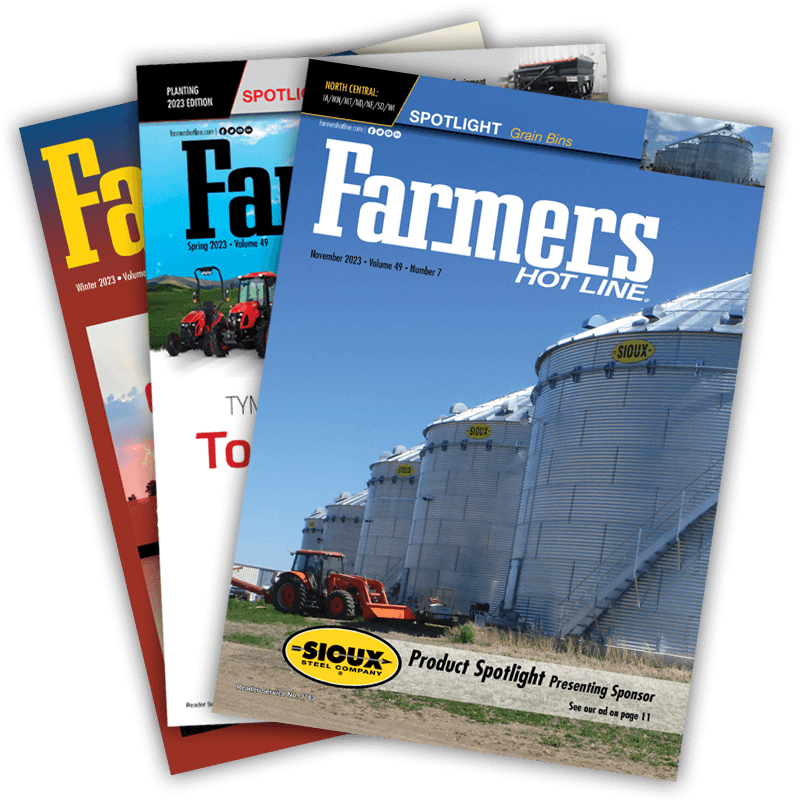Protecting Your Livestock
Essential Tips for Caring for Livestock in Cold Weather
As temperatures begin to drop and winter looms on the horizon, it’s time to prepare your farm or homestead for the colder months ahead.
Whether you’re a seasoned farmer, a homesteader or raising a few animals, caring for livestock during winter requires careful planning and attention to detail. Here’s a guide to help ensure your animals stay healthy, comfortable and well-cared for throughout the cold season.
Shelter: Strengthen Animal Housing
Winter can certainly come with its lovely moments (like the holidays, winter sports and more), but it also means harsh winds, freezing rain and, in many places, a lot of snow. Your livestock needs reliable shelter to stay protected. A three-sided shelter or barn can be sufficient for cattle and goats if it offers good ventilation and shields them from icy winds.
The University of Minnesota Extension recommends well-ventilated shelters to prevent respiratory problems. Horses can tolerate the cold, but they should still have access to a windproof shelter. The American Association of Equine Practitioners suggests blanketing older or vulnerable horses when the weather turns particularly harsh.
Chickens, though resilient, need a draft-free coop with proper ventilation to avoid frostbite. Extra bedding, such as straw, and covering drafts with heavy curtains or tarps can keep their living quarters warm. Purdue University Extension emphasizes the importance of insulating coop floors and ensuring ventilation to prevent moisture buildup.
Water: Keep it Coming
One of the biggest challenges of winter is ensuring your livestock has access to fresh, unfrozen water. Dehydration is a risk, even in cold weather. Heated water buckets or submersible heaters for water troughs can prevent freezing and are highly recommended by The University of Kentucky Extension.
If heated options aren’t available, you’ll need to break ice regularly, ideally, several times a day, to keep water accessible. Insulating water troughs and placing them in a sunny spot can also help prevent freezing.
Feed: Boost Calories
During the winter, livestock burn more calories to keep warm, so adjusting their feed intake is essential. Ruminants like cattle, goats and sheep rely on hay and forage to generate heat as they digest. Kansas State University Extension recommends increasing the amount of hay provided to ensure they have enough energy to withstand the cold.
For horses and goats, grain supplements can provide extra calories, but it’s essential to introduce these gradually to avoid digestive issues, as the American Veterinary Medical Association noted.
Additionally, keep mineral supplements like salt blocks readily available to ensure your livestock stay healthy.
Footing: Prevent Slips and Falls
Winter can bring ice, snow and mud — all of which can create dangerous conditions for livestock. Slippery surfaces are a risk to both animals and humans. Spreading gravel or sand in high-traffic areas, such as around water troughs and feeding stations, can prevent mud buildup and give your animals better traction.
Michigan State University Extension advises focusing on these key areas to avoid injury. Additionally, adding extra bedding material, especially in barns and shelters, helps insulate animals from low ground temperatures and provides a more comfortable surface.
Health Care: Prep for Winter
Winter can exacerbate health issues, so it’s wise to get ahead of potential problems. The University of Tennessee Institute of Agriculture advises ensuring your livestock is up to date on vaccinations, especially respiratory vaccines, as colder weather increases the risk of illness.
Parasite control should also be prioritized — animals with heavy parasite loads may struggle to stay warm. Throughout the winter, keep an eye on your animals’ body condition.
If you notice weight loss or other signs of poor health, adjust feed accordingly and consult with a vet as needed. Regular monitoring is crucial for older or more vulnerable animals.
Backup Plans: Be Ready for Emergencies
Winter weather is unpredictable, and preparing for emergencies like power outages, snowstorms or ice storms is critical. Stockpile enough feed, bedding and water to last through a blizzard, as deliveries to rural areas can be delayed during severe weather. Consider investing in a generator to power essentials like water heaters, lights and barn equipment during power outages.
Winterizing your farm and livestock operations takes time and effort, but the benefits are worth it. From ensuring proper shelter and water to boosting feed and planning for emergencies, these steps will keep your animals safe and healthy throughout the coldest months. Taking some extra time to prepare now will make all the difference when winter’s chill sets in.


